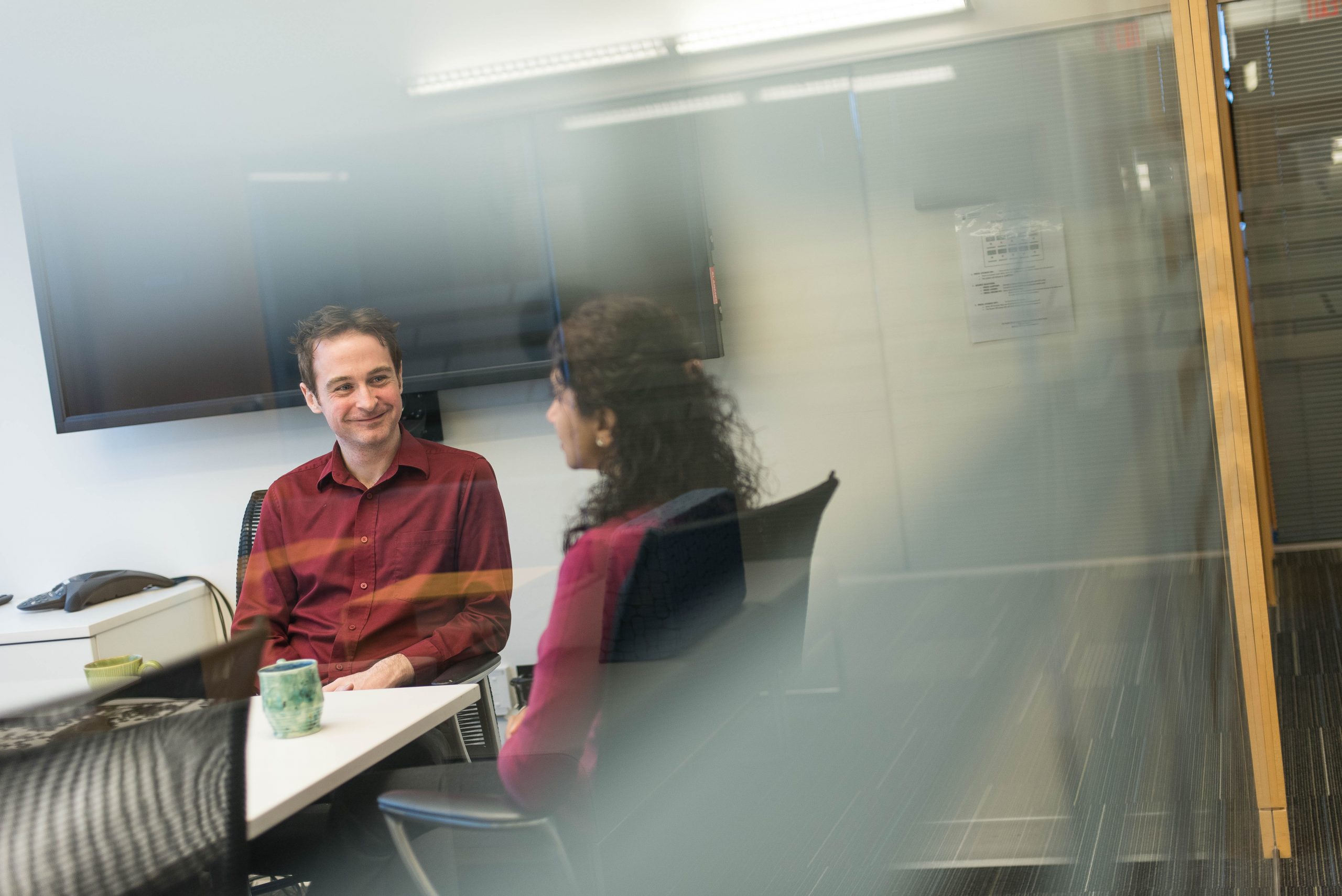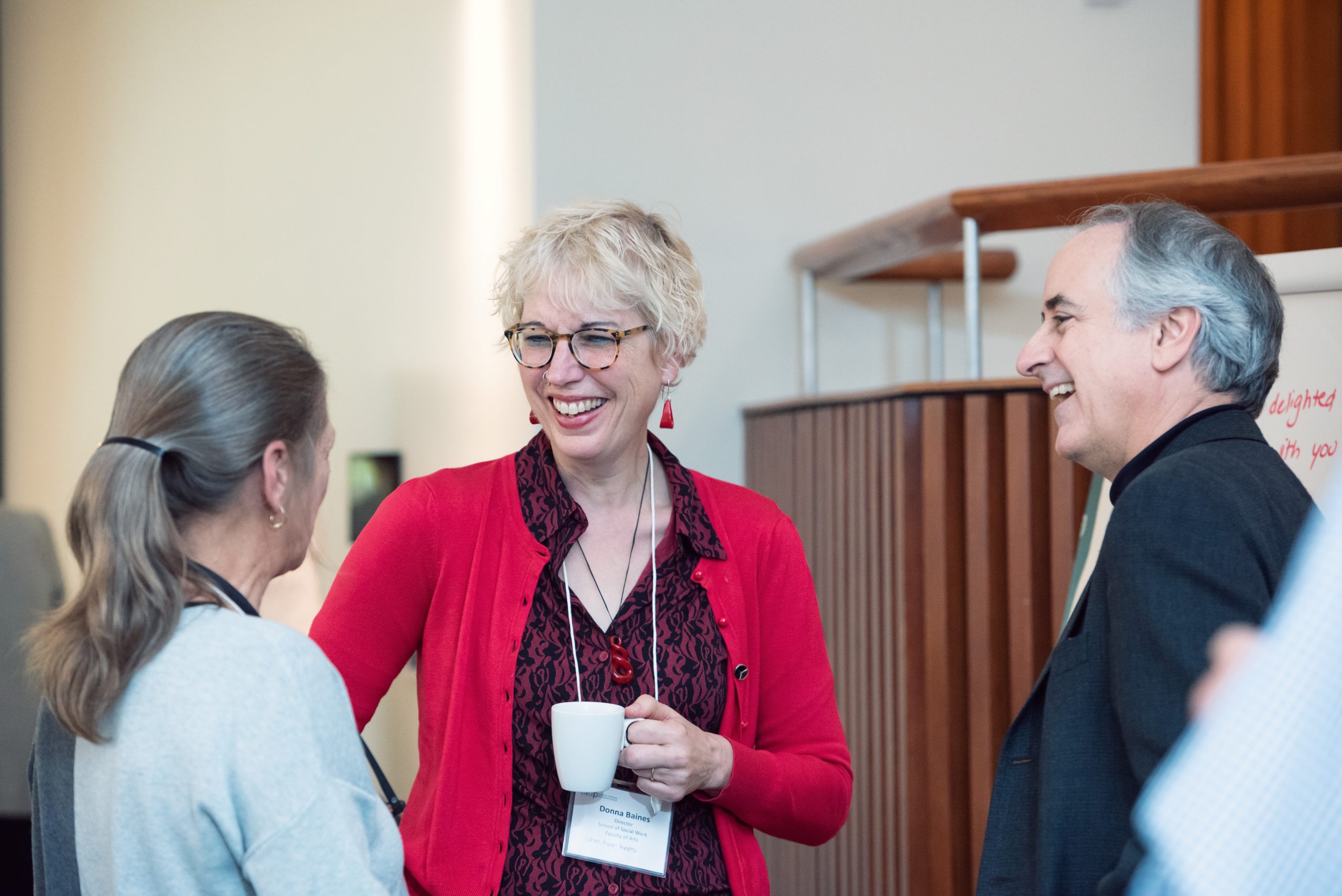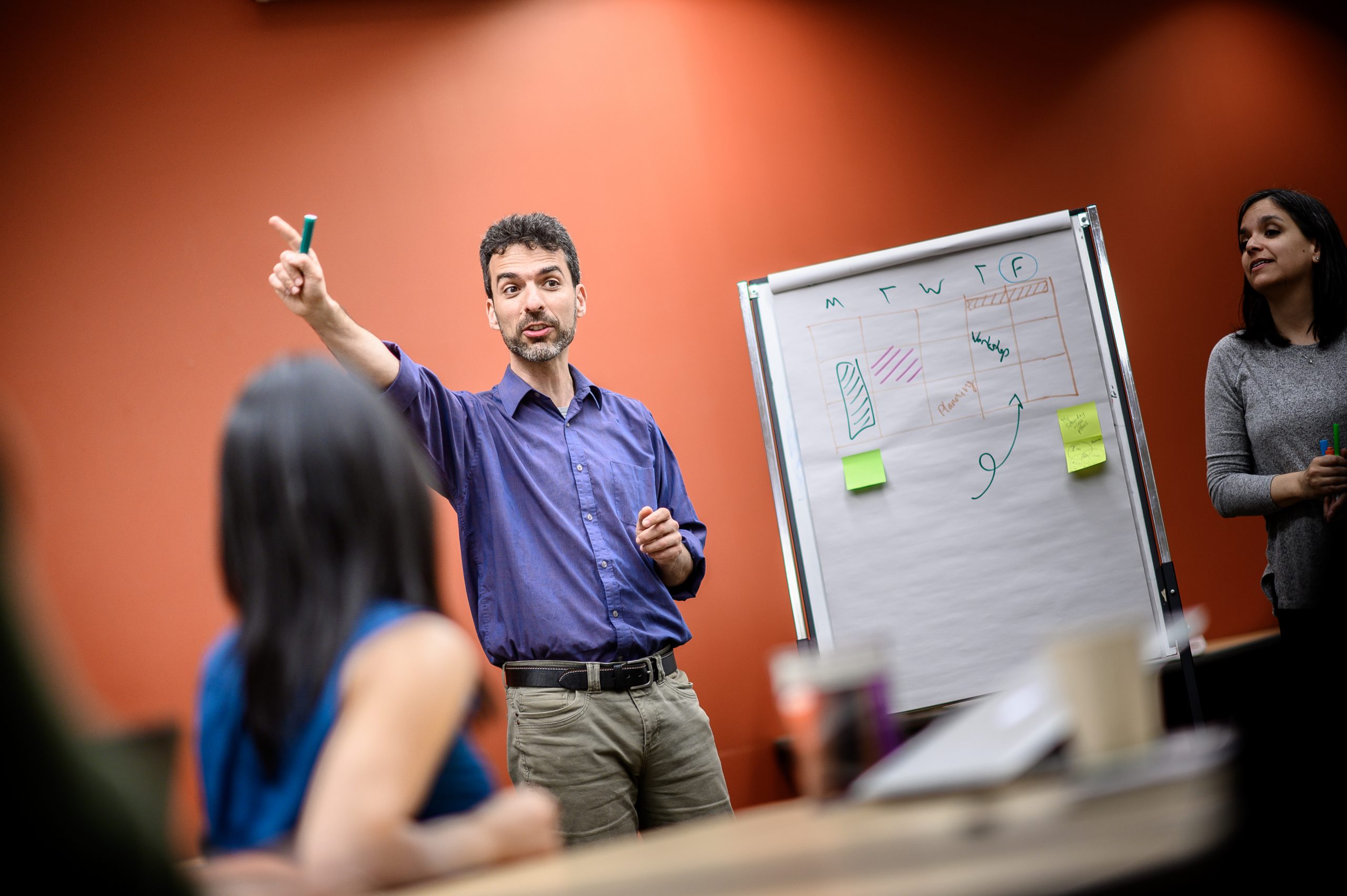By Melissa Baluk on June 15, 2022
 At UBC, we have shifted from the traditional model of performance review to ongoing performance conversations — thoughtful and productive two-way conversations focused on helping employees to grow in their careers, tapping into the employee’s strengths and adding new skills, and looking ahead.
At UBC, we have shifted from the traditional model of performance review to ongoing performance conversations — thoughtful and productive two-way conversations focused on helping employees to grow in their careers, tapping into the employee’s strengths and adding new skills, and looking ahead.
A performance conversation is largely driven by the employee, with the supervisor as coach and partner.
To support both employees and leaders in having effective conversations, the Connect, Open, Explore and Close (COEC) approach was developed in partnership with UBC Human Resources, Coaching Services and Extended Learning.
Available as a guide on the UBC HR website, the COEC approach provides a structure, questions and prompts that can be easily applied to your annual and ongoing performance and development conversations. The COEC model helps to build trust and safety, co-create intent and purpose, discover options and possibilities, and determine a plan with next steps.
Learn more about how to prepare, have, and reflect on performance conversations at UBC.
Posted in Catalyst #2: I can grow my career | Link | No Comments
By Melissa Baluk on June 7, 2022

UBC is committed to the ongoing development of faculty and staff leaders at every level of the organization.
Leadership is a shared responsibility where we live the vision and values that lead to excellence in teaching, research, learning and engagement for a better world.
Informed by this leadership philosophy, UBC has articulated a leadership framework with six competencies – and related behaviour statements – that all leaders can work toward.
The competencies and behaviours were arrived at through a careful mapping of the skills, knowledge and attitudes expected of senior UBC administrative leaders. They were further validated through internal consultations and a review of other leadership frameworks and competency models in Higher Education.
By uniting under a common philosophy and framework, everyone can take part in building the shared vision for leadership at UBC – a vision that holds us accountable to our strategic commitments and organizational values and enables us to embrace the complexity of our times.
Learn more about UBC’s leadership framework (CWL required).
Posted in Catalyst #4: I am inspired by diverse leaders who live UBC’s values | Link | No Comments
By Melissa Baluk on June 3, 2022

UBC consistently ranks as one of the world’s top research universities. Globally connected, we attract the highest-calibre research faculty and students and more than $750 million in research funding each year across both our Vancouver and Okanagan campuses.
In partnership with universities, industries, government and communities worldwide, our research discoveries are hugely influential. They are advancing new knowledge and have led to countless new products, treatments and services. In 2020/21, UBC was involved in over 10,000 research projects.
In 2022, UBC ranked #13 in the Times Higher Education Impact Ranking.
Thanks to researchers at our two campuses and affiliated teaching hospitals, UBC ideas, innovations and discoveries are improving lives around the world.
View the Research in Focus profiles to learn more about the people behind the research.
Posted in Catalyst #3: I am shaping the future of research, teaching and work | Link | No Comments
By Melissa Baluk on June 3, 2022

In 2021, UBC launched a remote work pilot for faculty and staff to reimagine how we work at the university.
The Remote Work program helps to create a flexible workplace environment that supports a range of institutional goals, including the attraction and retention of faculty and staff, as well as our commitments to inclusion, wellbeing, and climate action.
The program was modelled to respect the highly different roles and contexts that exist across UBC, while continuing to support the student experience and academic mandate of the university.
Whether we work on-campus or remotely, collectively we make UBC an inspiring place for students to learn, as well as for faculty and staff to research, teach and work.
Learn more about Remote Work at UBC
Posted in Catalyst #3: I am shaping the future of research, teaching and work | Link | No Comments
By Melissa Baluk on June 1, 2022
 The Anti-Racist Teaching and Learning workshops are for UBC faculty, staff, and educators who wish to cultivate a teaching or facilitation practice that serves as a form of solidarity, and is premised upon research and popular education pedagogy in the areas of anti-racism, equity, and inclusion.
The Anti-Racist Teaching and Learning workshops are for UBC faculty, staff, and educators who wish to cultivate a teaching or facilitation practice that serves as a form of solidarity, and is premised upon research and popular education pedagogy in the areas of anti-racism, equity, and inclusion.
This is an exceptionally challenging and wildly important time to be an educator, as our students grapple with isolation from their regular social connections, a new educational landscape, traumatic images in the media, and some big questions that arise as a result of current events. Sometimes referred to as a “double pandemic,” the systemic racism resulting in George Floyd’s murder and the COVID-19 crisis have created circumstances that challenge us to reflect, unlearn, look inward, and imagine new ways to generate educational – and societal – change.
Through the Anti-Racism Teaching and Learning workshop series, participants are guided through reflection on their own roles and fears as educators, and develop an introductory understanding of concepts such as anti-racism, privilege, allyship, and solidarity especially in the context of online teaching and learning. They also include the identification and intensive unpacking of harmful phrases that can lead to further marginalization of racialized or excluded students. Particular attention is paid to helping educators with specific teaching strategies, practical tools, and relevant resources for their teaching practice.
Recent workshop topics included Identifying and Responding to Harmful Phrases; Identity Maters: Connecting Power, Privilege and Bias to Anti-Racism Work; and Exploring Complex Classroom Dynamics Using Case-Studies.
Visit the Centre for Teaching, Learning and Technology for future workshop offerings.
Posted in Catalyst #2: I can grow my career | Link | No Comments
 At UBC, we have shifted from the traditional model of performance review to ongoing performance conversations — thoughtful and productive two-way conversations focused on helping employees to grow in their careers, tapping into the employee’s strengths and adding new skills, and looking ahead.
At UBC, we have shifted from the traditional model of performance review to ongoing performance conversations — thoughtful and productive two-way conversations focused on helping employees to grow in their careers, tapping into the employee’s strengths and adding new skills, and looking ahead.


 The Anti-Racist Teaching and Learning workshops are for UBC faculty, staff, and educators who wish to cultivate a teaching or facilitation practice that serves as a form of solidarity, and is premised upon research and popular education pedagogy in the areas of anti-racism, equity, and inclusion.
The Anti-Racist Teaching and Learning workshops are for UBC faculty, staff, and educators who wish to cultivate a teaching or facilitation practice that serves as a form of solidarity, and is premised upon research and popular education pedagogy in the areas of anti-racism, equity, and inclusion.